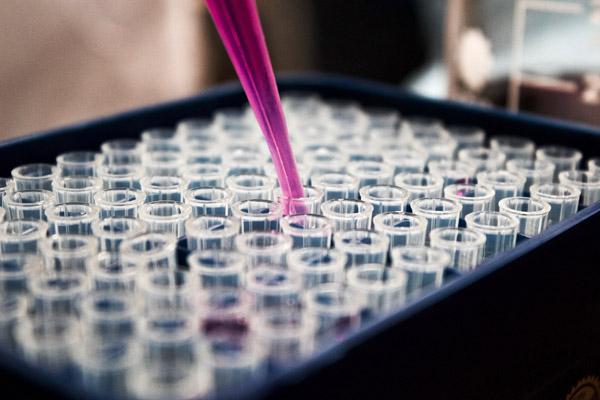
CLEVELAND -- The bioethics questions surrounding the REGN-COV2 treatment to create COVID-19 arose from reports the drug was developed using a cell line from tissue taken in the 1970s from an aborted fetus. The cell line has lived in laboratories since then and has undergone a series of changes over the years.
In April, the chairmen of four U.S. Conference of Catholic Bishops' committees and groups opposed to abortion sent a letter to Food and Drug Administration Commissioner Stephen Hahn expressing concern over the development of "dozens of vaccines ... some of which are being produced using old cell lines that were created from the cells of aborted babies."
The letter asked Hahn to "encourage and incentive pharmaceutical companies to use only ethical cell lines or processes for producing vaccines."
REGN-COV2 is the result of painstaking research since the 1970s that began with a cell line known as HEK293 that is commonly believed to have been derived from an aborted fetus. HEK293 cells are widely used in medical research.
Over the years, researchers have transformed the cell line into what today is known as HEK293T, leading to the determination that it is no longer fetal tissue.
Alexandra Bowie, senior director of corporate communications at Regeneron, told Catholic News Service that "fetal tissue was not used" in the company's research using the HEK293T cell line.
"We did not use human stem cells or human embryonic cells in the development of REGN-COV2," Bowie added.
The company Oct. 7 applied to the FDA for emergency approval for the experimental drug.
Father Tadeusz Pacholczyk, director of education and ethicist at the National Catholic Bioethics Center, agreed with the company's stance, saying in an email to CNS the drug is manufactured in hamster cells, "not cells derived from human abortions."
His concern, however, arises from the use by researchers of a biological assessment tool on REGN-COV2 that relies on the HEK293 cell line that originally was derived from an abortion. The tool, developed years ago, allowed Regeneron to determine which antibodies that had been developed might be most effective against COVID-19, he said
Please read our Comments Policy before posting.
Article comments powered by Disqus 2023 Year in Review: Community, teamwork prove pivotal
2023 Year in Review: Community, teamwork prove pivotal
 Ark. Catholic schools grapple with teacher shortage
Ark. Catholic schools grapple with teacher shortage
 COVID effects still reduce distribution of Eucharist
COVID effects still reduce distribution of Eucharist
 Sign of peace: Are gestures replacing handshakes, hugs?
Sign of peace: Are gestures replacing handshakes, hugs?
 Pandemic pushes kids’ mental health crisis to forefront
Pandemic pushes kids’ mental health crisis to forefront
 Studio 3:16 offers new approach to teaching religion
Studio 3:16 offers new approach to teaching religion
 After three decades, NLR principal plans to retire
After three decades, NLR principal plans to retire
 CHS athlete overcomes odds to reach collegiate goal
CHS athlete overcomes odds to reach collegiate goal
 John Calipari: UA basketball coach and devout Catholic
John Calipari: UA basketball coach and devout Catholic
 'Cabrini' film tells story of saint with great faith
'Cabrini' film tells story of saint with great faith